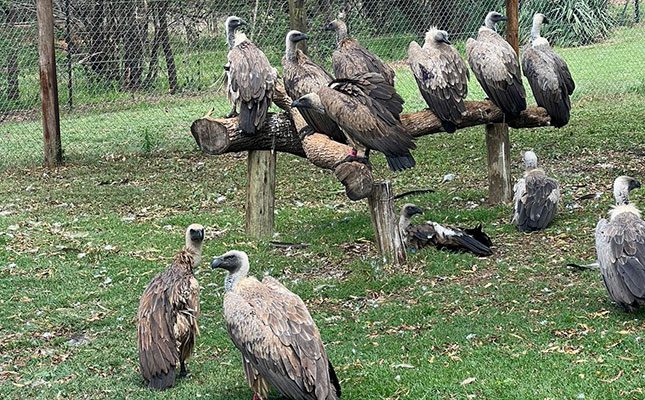
In the first phase of the project, 158 birds, including 15 releasable birds, will be moved to a custom-made facility in the Shamwari Private Game Reserve.
According to Kerri Wolter, CEO of the Vulture Conservation Programme (VulPro), the first-phase birds are expected to arrive at Shamwari on 22 January. They will accommodated in a bespoke facility, and the first of the releasable vultures are be set free by end of April. It will be a staggered release with two or three birds released at the same time.
“The offspring of the non-releasable birds will be released in future to augment vulture numbers in the Eastern Cape. Such offspring are usually set free between the ages of 11 and 12 months. Captive vulture breeding is a very slow process. Cape vultures, for instance, take about seven years to breed for the first time.
“The first phase consists of Cape and white-back vultures, while the second phase will have lappet-faced, hooded and white-headed birds. The plan is to include Egyptian vultures in the future as well. The second phase is planned for the end of the year,” Wolter told Farmer’s Weekly.
The Cape and African white-backed vultures will be transported from their current home at VulPro’s Hartbeespoort Dam facility during the first phase of the two-year relocation programme.
VulPro is the only vulture conservation facility of its kind on in Africa and is spearheading population restocking and supplementation to address the severe decline of African vulture species.
Wolter added that the partnership with Shamwari will create a safe area for both in-situ and ex-situ conservation programmes.
“Vultures, with the important and efficient ecosystem services they provide, are a significant addition to the ethos Shamwari has created in restoring a natural and well-balanced ecosystem. In addition to the stability and financial support that Shamwari brings, they provide sustainability to Vulpro’s breeding programme and the future of vultures in South Africa,” she said.
According to VulPro, vultures face multiple man-made threats, including but not limited to poisoning and power line collisions, and ever-decreasing foraging ranges. Some vulture species are threatened with possible extinction and some populations have plummeted by over 90% in the past 30 years.










